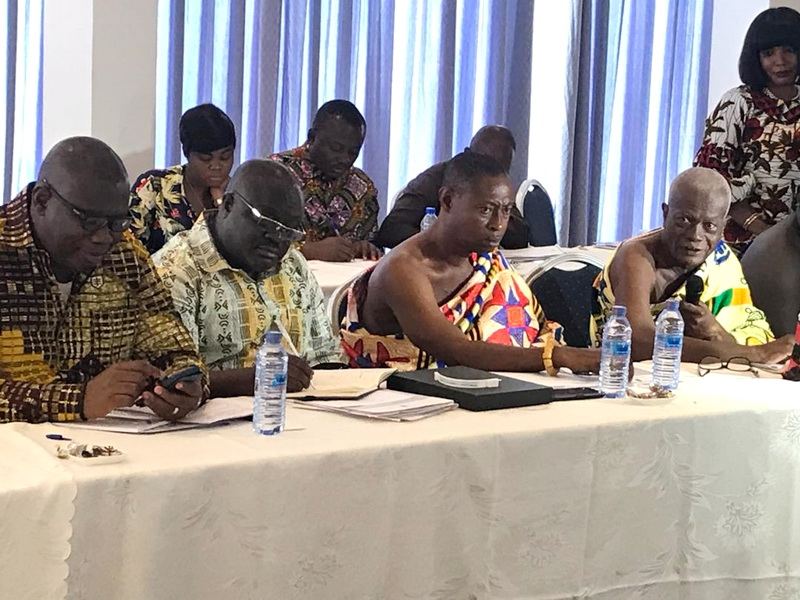
International Oil Companies baffled by customary demands, Petroleum Commission to intervene
The Petroleum Commission has indicated its readiness to intervene in alleged difficulties faced by international oil companies in following established protocols to access traditional rulers.
At the annual engagement with members of the Western Regional House of Chiefs in the Sekondi/Takoradi metropolis, the Ag. Chief Executive Officer, Petroleum Commission, Egbert Faibille Jnr assured the chiefs it would be resolved.
“I must say that the commission is worried about the fact that some IOCs and service companies claim that they find it untenable when they have to give cash donations when they visit the respective palaces,” he said.
“However, as a country, our Constitution and other relevant laws recognise customary law and it is only customary that when one calls at a chief’s palace or residence he or she does the needful,” he said.
The commission, he said, is committed to setting this right within the country’s laws, saying “To that end, we will give you copies of draft guidelines on donations we have prepared for the chiefs to critique and provide feedback to enable us finalise it for issuance to all players in our industry.”
“We at the commission believe that an enduring partnership with the Regional House Chiefs and other key stakeholders in the Western Region is the guaranteed way of ensuring that the desired level of change for the region is achieved”, he said.
Trust, openness & accountability
For this partnership to be sustained and yield positive results, he said it would require the institutions to work together in trust, openness, engagement, participation and accountability.
“These principles, I believe, have been amply demonstrated by the commission all these years and today is yet another testimony of our commitment to remain not only accessible but also accountable to our key stakeholders and the citizenry at large,” he said.
He said “Essentially, the commission, as the sector regulator for upstream oil and gas activities recognises the important role our Chiefs and people of the Western Region have and continue to play in the sector and thus, has instituted this annual workshop to interact with our key stakeholders in the region including the Regional House of Chiefs and the local assemblies,” he said.
The engagement also enables the Commission to update the House of Chiefs with developments on the upstream petroleum sector, including completed and ongoing projects, as well as a look at the future.
Share with the Commission
It also creates a platform for the chiefs to share with the Commission, their concerns and also provide advice on the conduct of its regulatory mandate.
He said the Petroleum Commission in its role, as the country’s upstream regulator will carry out its mandate in ensuring that oil production in the country contributes directly towards improving the standard of living of the people and accelerating socio-economic development in Ghana as a whole.
Egbert Faibille commended the chiefs and people of the region for their contribution of raising critical issues of contemporary relevance to the region as well as communities in the oil and gas enclave.
He expressed the hope that through constant interactions, “we would be able to provide and share ideas with the view of improving on our understanding of issues in the upstream petroleum sector and enhancing the welfare of the people we represent.”
Sustainability
The concept of sustainable development, Mr Faibille Jnr said, “is important to extractive nations such that it cannot and must not be left for only the central government.”
He said sustainability could only be achieved through the concerted efforts of all state actors, including the chiefs and the country’s established traditional governance systems.
“The Commission understands that it is our Chiefs and traditional rulers who are best placed to understand the needs and aspirations of the people, the challenges of the local environment and local economy (including the fishing industry) as well as the dynamics of the different groups living in the local environments,” he said.
The acting President of the Western Regional House of Chiefs and the Paramount Chief of Eastern Nzema Traditional Area, Awulae Amihere Kpanyile III, commended the Commission for the engagement.